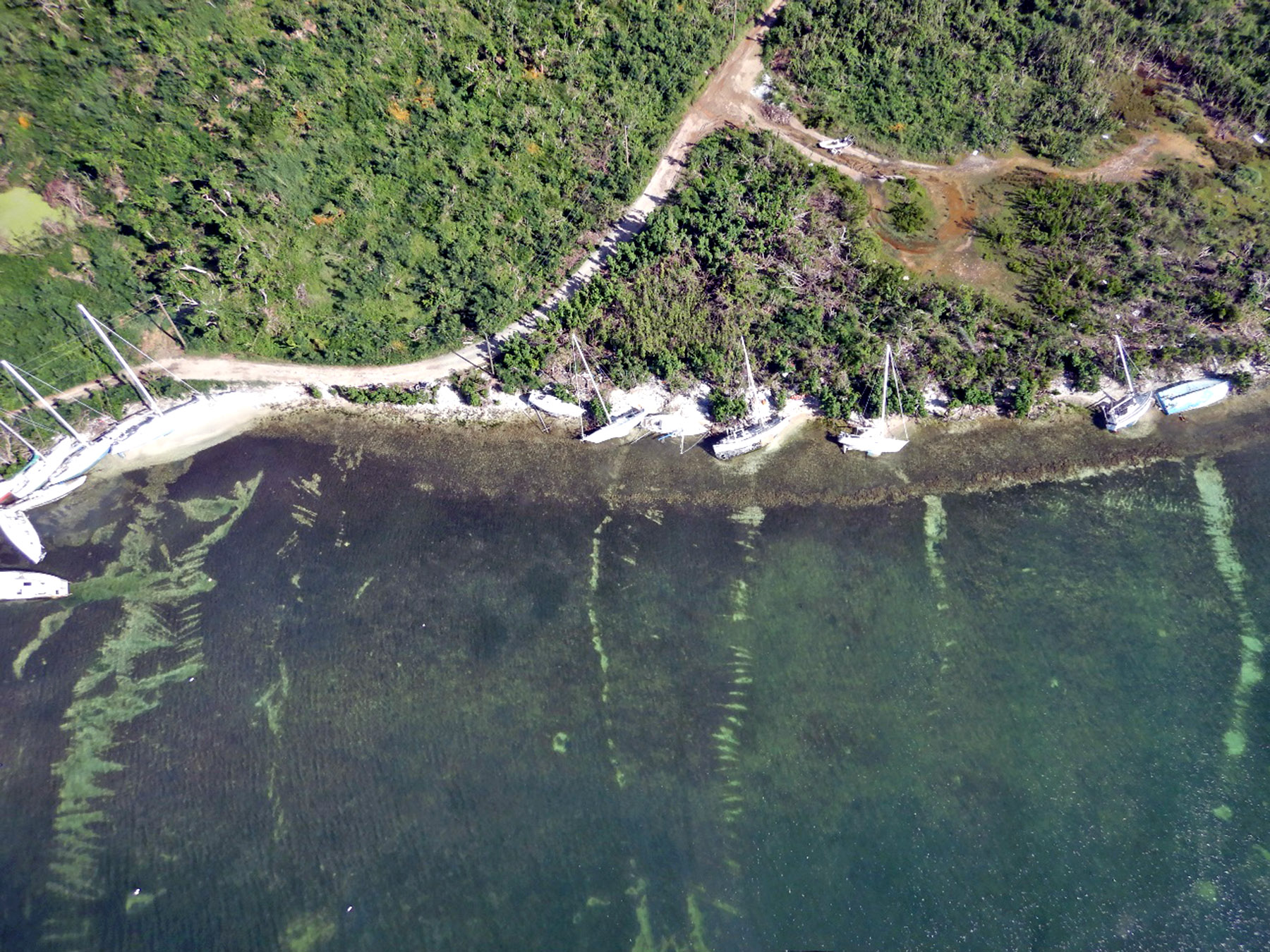Hurricane-displaced vessel grounded on a coral reef, St. Croix, USVI.
Multiple RPI personnel have been assisting NOAA, the U.S. Coast Guard, and State and Territorial Governments with scientific support, natural resource protection, and environmental compliance following Hurricanes Irma and Maria in Florida, Puerto Rico, and the U.S. Virgin Islands. RPI’s work has been part of the FEMA Emergency Support Function 10 (ESF-10) missions in these locations, focused on pollution response, displaced vessel removal, and orphaned container recovery in marine and coastal habitats, including coral reefs, seagrass beds, mangroves, and sea turtle nesting beaches. RPI personnel have been engaged in this effort since September 2017, with operations concluding in Florida in February 2018 and in the U.S. Virgin Islands and Puerto Rico in March 2018. RPI personnel filled the following roles during these missions: Environmental Unit (EU) Leader, EU Technical Specialist, Resources at Risk Specialist, Natural Resource Advisor, Biological Monitor, GIS/Data Manager, and GIS/Data Specialist. Specific RPI tasks included:
- Area-wide photointerpretation of hurricane-displaced vessels and marine debris;
- GIS/mapping support for displaced vessel assessment and removal actions;
- Field assessments of displaced vessels and associated habitats;
- Development of environmental BMPs and job aids for displaced vessel removal;
- Endangered Species Act Section 7 emergency consultations;
- Essential Fish Habitat (EFH) emergency consultations;
- National Historic Preservation Act Section 106 emergency consultations;
- Clean Water Act Section 404 and River & Harbors Act Section 10 permitting;
- Natural Resource Advising and Biological Monitoring for field operations; and
- Marine and coastal habitat stabilization, repair, and restoration.
Two recent NOAA blogs summarize the completion of ESF-10 operations in Puerto Rico and the U.S. Virgin Islands, featuring quotes, narratives, and photos from RPI personnel.
For more information contact: Scott Zengel (850) 329-2001 or Jacqueline Michel (803) 256-7322.


